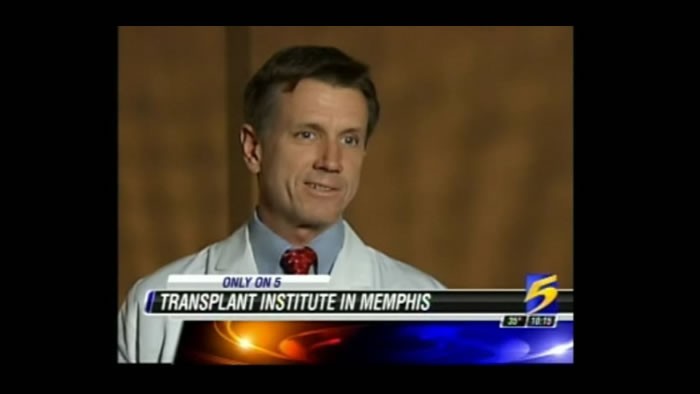When I visited him in his office this week, Dr. James Eason was dressed all in black, which pretty much matched his mood.

His holidays were fine. What had him down was the news he got in December that the Methodist University Transplant Institute had lost another and probably final round to Nashville and Vanderbilt University over an organ-sharing agreement.
“This is very disappointing,” he said. “Now people in Memphis and the Mid-South have access to only 25 percent of the organs from the state of Tennessee. We had been able to save an average of 11 patients a month through liver transplants because of the statewide agreement. Since December 5th we have been limited to four donors. That’s what we’re going to be dealing with.”
Eason, director of the center, did a life-saving liver transplant for Apple co-founder Steve Jobs in 2009 that extended his life two-and-a-half years. It was one of roughly 120 such transplants the center did each year under the old statewide organ-sharing agreement. When the Jobs story finally trickled out, it gave Methodist, the transplant center, and Memphis some bragging rights, especially against Nashville, which happens about as often as the University of Memphis rules the state in football.
In December, however, Eason was notified that the new sharing agreement, supported by the Department of Health and Human Services, Vanderbilt, and the Memphis-based Mid-South Transplant Foundation, was final.
“I believe a political decision was made, not an evidence-based decision,” he said.
Meaning what? I asked.
“I will leave it at that. People in Nashville won at the expense of people in Memphis and West Tennessee. There was misinformation that confused and prevented the groundswell of community support.”
Eason estimates that the number of liver transplants performed here each year will fall to 60 or less. Methodist and affiliated Le Bonheur Children’s Hospital have been one of the top 10 transplant programs in the country for 40 years. That status, Eason says, is likely to end. The December fall-off is likely to continue. Meanwhile, Tennessee Donor Services based in Nashville had 14 liver donors. Nine of those went to Vanderbilt and five went out of state. In the past, Methodist would have split those with Vanderbilt.
“We have a young man, an adolescent, waiting at Le Bonheur since December 13th with the highest [eligibility] score in the state, but he can’t get access to those organs unless they are turned down by Vanderbilt, which does not have a pediatric liver transplant program.”
Eason was born at Baptist Memorial Hospital in downtown Memphis and grew up in Jackson, Tennessee. He looks like an actor that television producers would cast in the role of the chief doctor in a hospital drama. As the public face of the transplant center, he is not a self-promoter. I (and others) have tried for more than a year to get him to tell the Steve Jobs story in depth, but he won’t do it.
Looking back on it, Eason said the Jobs story had mixed consequences because of perceptions that the wealthy Californian jumped the line.
“We are a center of excellence, and people who have a choice choose excellence,” Eason said. “I think his transplant was used by some people to overshadow the fact that over 90 percent of our patients are from the Mid-South.”
The doctor and his famous patient, whose stay in Memphis was cloaked in secrecy, formed an unusual bond. After the operation, Eason bought the house in Midtown where Jobs stayed.
“That’s an old story,” he said. “I still live there. I bought that house.”
I asked him if he plans to stay in Memphis. Overachievers, whether they be entrepreneurs, doctors, or coaches, tend to go where the most action is.
“I have been approached by other programs,” he said. “I am a native West Tennessean, but I also have to look at every option and opportunity where I can do the most good. Right now, my main consideration is providing transplants to the people we have here.”
The Memphis center does liver, kidney, and pancreas transplants. The team includes five surgeons and 10 doctors in all, as well as support personnel.
“Everybody in the center is more experienced, from surgeons to nurses to allied health providers,” he said. “And it is easier to recruit the best and brightest to a program that is doing a lot of transplants.”